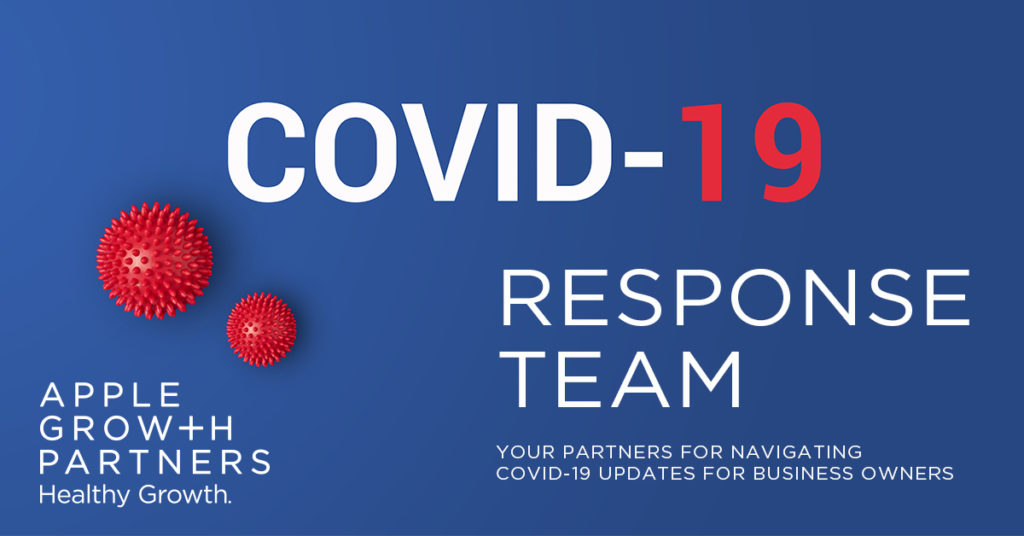
November 20, 2020
By Kathy Davis, CPA, and Robert Jackson, CPA | COVID-19 Response Team
Late Wednesday, November 18, 2020, the IRS issued Revenue Ruling 2020-27. The IRS is taking the position that expenses paid with Paycheck Protection Program (PPP) loans during the covered period are not deductible if, as of the end of the taxable year that the expenses were paid or incurred, the taxpayer reasonably expects to receive forgiveness on the basis of those expenses.
Background –
- Originally, many felt that PPP loan forgiveness was intended to be tax-free based on the reading of the statute.
- On April 30, 2020, the IRS issued Notice 2020-32, establishing the IRS position that all expenses paid with forgiven funds would be non-deductible based on the principles of Section 265, with an alternative position that the expenses would not be deductible if there was a reasonable expectation of reimbursement.
- Yesterday, Thursday, November 11, 2020, the IRS formalized their position by issuing Revenue Ruling 2020-27, choosing the reimbursement argument instead of Section 265 as their primary argument, and relying on Section 265 for the alternative argument. Essentially, they simply switched their primary and alternative arguments and in substance, did not change the end result of Notice 2020-32.
According to the Ruling, it does not matter if the application for forgiveness has been filed before the end of the tax year. The Ruling explains that based on the “clear and readily accessible guidance available to apply for and received covered loan forgiveness” the Taxpayer can make a determination of their reasonable expectation of forgiveness.
Thus, if the taxpayer “reasonably expects” to have its PPP loan forgiven, and even though the forgiveness is not approved until the end of 2021, they cannot deduct the expenses in 2020.
But, as many of us are experiencing right now, there are some outstanding issues, which may delay remitting the application for forgiveness (you know, the areas where there is really NO “clear and readily accessible guidance”). Perhaps by the time your return is filed, you may have not even applied yet for forgiveness. So, what if your “reasonable expectation” is wrong?
Well, the IRS responded to that by also issuing Revenue Procedure 2020-51. Revenue Procedure 2020-51 gives taxpayers two options (safe harbors) for deducting expenses on their 2020 return or on a subsequent year return (that were originally not deductible under Rev. Rul. 2020-27).
The two Safe Harbors under this Rev Proc. are as follows:
Safe Harbor #1
- The taxpayer paid/incurred eligible expenses in the 2020 tax year for which no deduction is permitted because the taxpayer reasonably expects to received forgiveness of the covered loan.
- The taxpayer submitted before the end of the 2020 taxable year, OR as of the end of the 2020 tax year intends to submit in a subsequent tax year the application for covered loan forgiveness,
- AND In the subsequent tax year, the lender notifies the taxpayer that forgiveness in all or part of the loan is denied.
Safe Harbor #2
- The taxpayer meets 1 & 2 above in Safe Harbor #1
- AND in the subsequent tax year, the taxpayer irrevocably decides not to seek forgiveness for some, or all of the covered loan (example, the taxpayer determines that it will not qualify for covered loan forgiveness and withdraws the application submitted to the lender).
Taxpayers described in either safe harbor above may deduct the non-deducted eligible expenses on the taxpayer’s timely filed (including extensions) original income tax return for 2020, or on an amended return for 2020 if necessary.
Alternatively, the taxpayer may choose to claim the non-deducted eligible expenses on the taxpayers timely filed (including extensions) original return for the subsequent tax year for any expenses denied in the loan forgiveness process. A statement would need attached to the return to with information as noted in the Rev Proc.
Or course, there are still outstanding issues that these rulings do not address (not an all-inclusive list):
- The effect of non-deducted eligible expenses on the Qualified Business Income deduction?
- The effect of non-deducted eligible expenses on the R & D Credit?
- The effect of the rulings on fiscal year taxpayers?
- Determination of a reasonable expectation of reimbursement for those with loans in excess of $2,000,000?
- When should the self-employed file their application?
Note that while these rulings formalize part of the IRS position on the taxation of loan forgiveness, Congress may still pass legislation reversing this position before the end of the year or in 2021. Certainly, the House intended to do just that – as the Heroes Act passed at the end of September 2020 reflects this position. But until the Senate considers this legislation, we are stuck with the IRS position, and taxpayers must plan accordingly by setting aside the necessary funds in case Congress declines to act.
Apple Growth Partners’ published material provides general coverage of its subject area and is presented to the reader for educational purposes based on the most current regulatory information available at the time it was written. All communications, whether written or oral should be reaffirmed prior to the submission of any application. All information in this published material and on our website is provided in good faith; however, we make no representation or warranty of any kind, express or implied, regarding the accuracy, adequacy, validity, reliability, availability, compliance with any law (federal, state or local) or professional standard or completeness of any information. We assume no responsibility to any recipient of this material to correct or update its contents for any reason, including changes in any law or professional standard. It is not intended to be audit, tax, accounting, advisory, consulting or investment advice. The information in this article is also not a substitute for legal advice and may not be suitable in a particular situation. Consult your attorney for legal advice.
Our articles, other published materials and website occasionally contain links to other web pages. Links to organizations and government agencies are provided as a convenience to our readers. The firm does not endorse and is not responsible for any third-party content that may be accessed from its website and does not recommend or endorse the use of any third-party’s services. The links are to be accessed at the user’s own risk, and the authors of this website make no representations or warranties about the content of these links.

